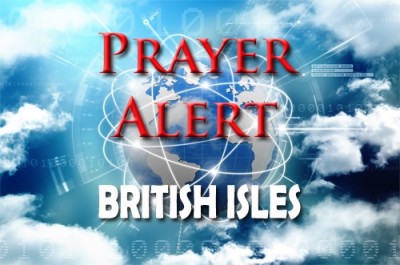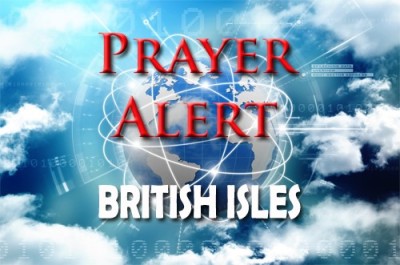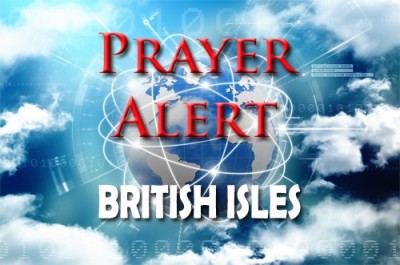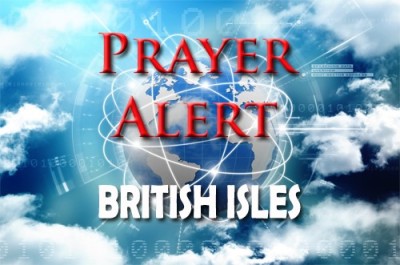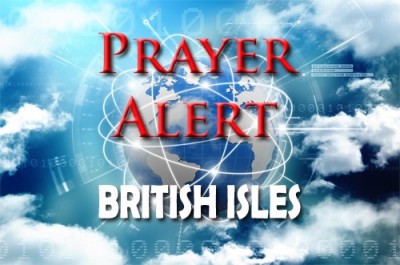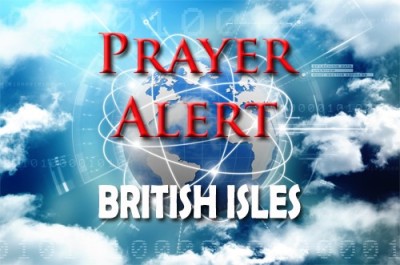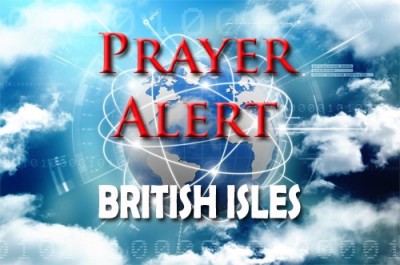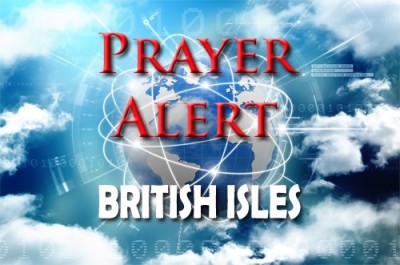Keir Starmer has declared that 'all options are on the table' as Britain weighs its response to Donald Trump’s global tariffs on steel and aluminium. The EU has already imposed countermeasures, but the UK has taken a cautious approach, seeking an economic agreement rather than immediate retaliation. Trump administration insiders warn that a quick trade deal with the UK may hinge on abandoning online safety legislation - a demand Starmer is unlikely to meet. Additionally, US vice president JD Vance has prioritised free speech concerns in trade talks, challenging the UK’s regulations on tech companies. With the UK now outside both the EU and US trading blocs, businesses fear further economic strain. Steel industry leaders have urged the Government to take strong action, while some politicians argue that failing to respond will weaken the UK’s position. As tensions mount, prayers are needed for wisdom in leadership, economic stability, and fair trade agreements.
A Russian captain has been arrested following a catastrophic collision between the cargo ship Solong and the US-flagged tanker Stena Immaculate in the North Sea. The crash, which occurred while the tanker (which was anchored) was carrying jet fuel for the US military, resulted in fires on both vessels and emergency rescue operations. The UK has launched a criminal investigation, arresting the 59-year-old captain on suspicion of gross negligence, and also manslaughter because one crew member from the Solong is presumed dead (thirteen others were rescued). Experts are baffled by how such an incident could happen with modern navigation technology, which should have detected the tanker. Environmental groups have warned of a potential ecological disaster to nearby rare bird colonies if jet fuel leaks into the sea. Concerns were raised about sodium cyanide on board, but the ship’s owners denied that there was any hazardous cargo. This tragic event highlights the need for maritime safety and environmental protection.
Starner outlines plans to scrap NHS England
13 Mar 2025Keir Starmer has announced plans to abolish NHS England, aiming to cut bureaucracy and redirect funds to frontline healthcare. Calling it an ‘arms-length body’, he argued that scrapping it would eliminate duplication, saving money for nurses and patient care. Health secretary Wes Streeting acknowledged that up to 10,000 jobs could be cut, but said reform was necessary to reduce inefficiency. NHS England, established in 2013, oversees daily NHS operations with a £168 million budget. Last month, its chief executive Amanda Pritchard stepped down, reflecting mounting pressures. Starmer’s broader government efficiency plan includes AI-driven reforms to streamline state functions, aiming to save £45 billion, and to cut compliance costs for businesses by 25%. He criticised the state as overstretched and ineffective, promising to reduce regulatory burdens. Streeting called the move the ‘final nail in the coffin’ of the ‘disastrous’ 2012 NHS reorganisation, pledging to empower healthcare workers and shorten waiting times.
The Government’s sudden closure of the Sustainable Farming Incentive (SFI) has left farmers struggling, with no replacement scheme announced. The SFI, which paid farmers to protect soil, restore hedgerows, and boost nature recovery, was a key part of post-Brexit agricultural support. Though 37,000 agreements were made, the government stopped accepting applications, leaving many without expected funding. Farmers fear they will be forced to abandon environmental efforts in favor of intensive food production to survive. Organic farmer Anna Biesty now faces a £140,000 shortfall, calling the decision 'a waste of time' for those who planned around the scheme. Agricultural leaders are criticising the move as harmful to both nature and food security. The Government insists it remains committed to sustainable farming, promising a new scheme later this year, but farmers feel betrayed and financially vulnerable.
New analysis reveals that over half of the rise in disability benefit claims since Covid is due to mental health conditions, including depression, anxiety, and behavioral disorders. The number of working-age adults on sickness benefits has surged by nearly a million, with 2.9 million now receiving disability benefits. The Institute for Fiscal Studies (IFS) warns of a real decline in mental health, pointing to increased NHS mental health referrals, antidepressant prescriptions, and a 24% rise in 'deaths of despair' - including suicides and drug-related fatalities. The government is considering £5 billion in cuts to disability benefits, arguing the system is unsustainable. However, mental health experts caution that reducing support could worsen financial hardship and increase suffering. Critics argue that addressing root causes such as economic stability, job quality, and early mental health intervention is key to tackling this crisis. As mental health struggles continue to rise, prayer is needed for wise leadership and compassionate solutions for those affected.
As the Assisted Dying Bill continues through committee review, concerns have grown over insufficient safeguards for vulnerable patients. MPs backing the bill have rejected multiple amendments aimed at preventing coercion, medical misjudgments, and unsafe practices. Despite warnings of ‘doctor shopping’, where patients seek multiple approvals until they find a doctor who consents, MPs voted against stricter oversight. Concerns were also raised over the lack of judicial review, meaning life-ending decisions could be made without proper legal scrutiny. Evidence from Oregon revealed serious complications and prolonged suffering in some assisted suicides, contradicting claims of quick and painless deaths. MPs rejected a proposal to require doctors to warn patients of these risks. Coercion remains a major concern, with an amendment requiring doctors to ask why patients are seeking assisted suicide being voted down. Many fear patients may feel pressured due to illness, loneliness, or financial burdens, rather than making a truly independent choice. With serious ethical and medical concerns unresolved, prayer is needed for wisdom, compassion, and support for the doctors, nurses and hospices on the front line.
A judge has thrown out the case against Christian preacher Karandeep Mamman, who was arrested after being threatened and assaulted by an Islamic mob while publicly sharing his faith. Despite being harassed and surrounded in Walsall town centre, Mamman was later prosecuted for causing religiously aggravated harassment. His preaching, which included critiquing Islam’s depiction of Jesus, angered a group of 20-30 people who threatened to beat him and cut his throat. CCTV footage confirmed that he was the victim of aggression, yet police charged him instead of those who attacked him. His lawyers successfully argued that prosecuting him violated free speech rights, and the judge ruled not guilty after the prosecution withdrew evidence. Mamman praised God for the outcome, warning that Christians must not be silenced for publicly sharing the Gospel. As free speech in the UK faces growing challenges, believers must pray for boldness in proclaiming Christ.
A judge has thrown out the case against Christian preacher Karandeep Mamman, who was arrested after being threatened and assaulted by an Islamic mob while publicly sharing his faith. Despite being harassed and surrounded in Walsall town centre, Mamman was later prosecuted for causing religiously aggravated harassment. His preaching, which included critiquing Islam’s depiction of Jesus, angered a group of 20-30 people who threatened to beat him and cut his throat. CCTV footage confirmed that he was the victim of aggression, yet police charged him instead of those who attacked him. His lawyers successfully argued that prosecuting him violated free speech rights, and the judge ruled not guilty after the prosecution withdrew evidence. Mamman praised God for the outcome, warning that Christians must not be silenced for publicly sharing the Gospel. As free speech in the UK faces growing challenges, believers must pray for boldness in proclaiming Christ.
